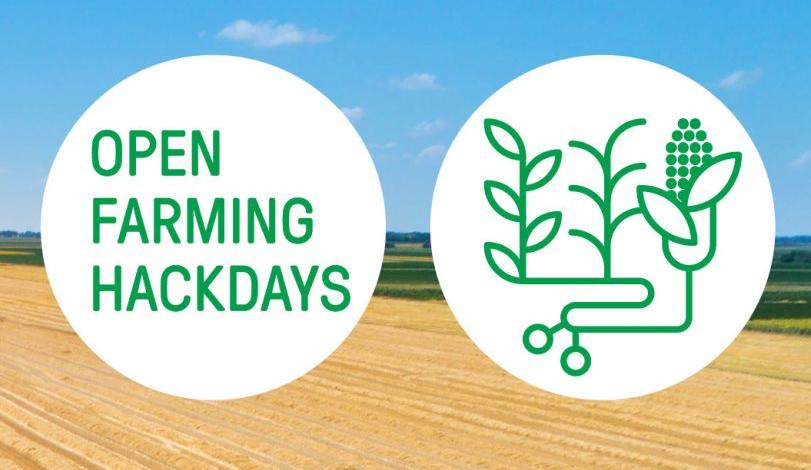Dein Foodmatch - Kauf mich, Koch mich!
Plattform, welche aktuelle Angebote von Anbietern regionaler LM mit passenden saisonalen Rezeptvorschlägen und Weintipps verknüpft.
🎞️ Demo (YouTube) 🎞️ Promo (YouTube)
Ausgangslage
Saisonale Küche aus regionalen Zutaten ist ein Trend. Viele private Konsumenten legen wieder vermehrt Wert auf nachhaltigere Ernährung mit saisonalen Produkten aus der eigenen Region. Dieser Trend wurde längst aufgegriffen und zahlreiche Produzenten wie auch Anbieter von regionalen Einkaufs- und Vermittlungsplattformen bieten ein stetig wachsendes Angebot an saisonalen Lebensmitteln aus der Region für private Konsumenten an. Noch mehr als beim klassischen Einkauf stehen dabei die Konsumenten vor der Frage, was man aus den jeweils erhältlichen Lebensmitteln kochen soll bzw. kann. Es gibt zwar saisonale Rezepte und Kochbücher wie Sand am Meer, jedoch ist es relativ aufwändig passende Rezepte zu den gerade lokal verfügbaren Lebensmitteln zu finden. Die saisonalen Angebote können sich innerhalb der Regionen stark unterscheiden, daher brauchen Konsumentinnen konkretere Infos als eine generische schweizweite Saisontabelle und es braucht für lokale Produkte idealerweise auch passende lokale Rezepte bzw. Rezeptvorschläge.
Idee / Lösungsvorschlag
Hier will unsere Challenge ansetzen: Die Idee besteht darin, bestehende Plattformen von Anbietern mit auf das saisonale und lokale Angebot abgestimmten Rezeptvorschlägen zu verknüpfen. Dadurch erhält der Konsument während des Online-Einkaufs Ideen, was er mit den aktuell verfügbaren und saisonalen Produkten kochen kann und welche Menge er dazu kaufen muss. Oft weiss man vor dem Einkaufen nicht, was man kochen soll und überlegt sich dies mühsam während dem Einkauf. Mit den Vorschlägen erhalten Konsumenten Ideen für neue Menüs, die spezifisch auf das Angebot ihrer Region zugeschnitten sind, und damit einem zusätzlichen Mehrwert beim Einkaufen. Dieser Mehrwert hilft letztendlich auch den Anbietern und Produzenten und macht das regionale Einkaufen attraktiver. Als zusätzliches Features erhalten Konsumenten durch Foodmatch passende regionale Weinvorschläge.
Links / Daten
(Saisonale) Rezepte:
- https://bio-mio.ch/magazin/rezepte/
- https://little.fooby.ch/de/kleine-kochwelt/kochwissen/was-waechst-in-der-schweiz.html
- https://www.berghilfe.ch/was-wir-tun/aktuell/berggenuss?gclid=EAIaIQobChMIhYe5rPqC8gIVDwOLCh1GugwnEAAYASAAEgJtEPD_BwE
- https://www.helvetibox.ch/de/unsere-schweizer-regionale-rezepte/
- https://www.landfrauen.ch/de/ernaehrung/rezepte/
- https://gourmagine.ch/
- https://www.swissmilk.ch/de/rezepte-kochideen/
- https://www.kartoffel.ch/
- https://landwirtschaft.ag/produkte
- https://www.gutekueche.ch/schweizer-rezepte
- https://naturbuur.ch/108/kochbuch
- https://www.poulet-buur.ch/fleisch-qualitaet/poulet-rezepte
- https://www.gemuese.ch/Rezepte / https://www.gemuese.ch/Saisonkalender
- https://www.landwirtschaft.ch/saisonkalender/
- https://www.nachhaltigleben.ch/rezepte/
- https://sensekiste.regiova.ch/rezepte/
- https://www.gutekueche.ch/rezepte-aargau-artikel-142
Anbieter / Potenzielle Kooperationspartner:
- https://www.jackripe.com/de-CH
- https://www.buurontour.ch/
- https://marktschwaermer.ch/de-CH
- https://www.farmy.ch/
- https://hofkind.ch/
- https://gourmagine.ch/
- https://bio-mio.ch/
- https://schnoigge.ch/
- https://olanga.ch/
- https://www.compactcook.com/

Looking for a shareable component template? Go here --> sveltejs/component-template
svelte app
This is a project template for Svelte apps. It lives at https://github.com/sveltejs/template.
To create a new project based on this template using degit:
npx degit sveltejs/template svelte-app
cd svelte-app
Note that you will need to have Node.js installed.
Get started
Install the dependencies...
cd svelte-app
npm install
...then start Rollup:
npm run dev
Navigate to localhost:5000. You should see your app running. Edit a component file in src, save it, and reload the page to see your changes.
By default, the server will only respond to requests from localhost. To allow connections from other computers, edit the sirv commands in package.json to include the option --host 0.0.0.0.
If you're using Visual Studio Code we recommend installing the official extension Svelte for VS Code. If you are using other editors you may need to install a plugin in order to get syntax highlighting and intellisense.
Building and running in production mode
To create an optimised version of the app:
npm run build
You can run the newly built app with npm run start. This uses sirv, which is included in your package.json's dependencies so that the app will work when you deploy to platforms like Heroku.
Single-page app mode
By default, sirv will only respond to requests that match files in public. This is to maximise compatibility with static fileservers, allowing you to deploy your app anywhere.
If you're building a single-page app (SPA) with multiple routes, sirv needs to be able to respond to requests for any path. You can make it so by editing the "start" command in package.json:
"start": "sirv public --single"
Using TypeScript
This template comes with a script to set up a TypeScript development environment, you can run it immediately after cloning the template with:
node scripts/setupTypeScript.js
Or remove the script via:
rm scripts/setupTypeScript.js
If you want to use baseUrl or path aliases within your tsconfig, you need to set up @rollup/plugin-alias to tell Rollup to resolve the aliases. For more info, see this StackOverflow question.
Deploying to the web
With Vercel
Install vercel if you haven't already:
npm install -g vercel
Then, from within your project folder:
cd public
vercel deploy --name my-project
With surge
Install surge if you haven't already:
npm install -g surge
Then, from within your project folder:
npm run build
surge public my-project.surge.sh
Previous
Open Farming Hackdays 2021
Next project



